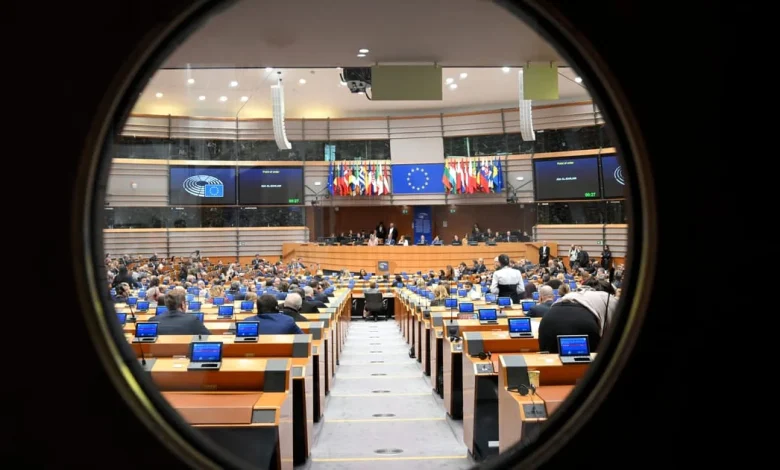EU Parliament must be willing to use its veto power

Still, the Parliament’s consent is indispensable. So, if it is to play an equal role in shaping the bloc’s strategic future, the Parliament must be willing to use its veto power if necessary. And in order to act effectively, it must link its consent on the MFF to broader issues beyond the budget.
The MFF isn’t merely a financial plan — it is the backbone of Europe’s political priorities for the coming decade. And it shouldn’t be adopted in isolation from the bloc’s strategic goals or its capacity to act.
But for that to happen, three things must take place: First, the so-called “passerelle clauses” need to be activated. This would allow the Council to shift from unanimity to qualified majority voting in specific policy areas without the need for treaty reform, which is essential to overcome persistent deadlocks.
Next comes European defense. Article 42 of the Treaty on European Union provides a mutual defense clause, which could potentially lead to a common defense. In an era of heightened geopolitical tension, reliance on fragmented national capabilities is untenable. However, a credible European security posture would require joint procurement as well as shared operational planning. Therefore, linking MFF funding to concrete steps in defense integration would improve European security while also reinforcing the bloc’s global credibility.
Lastly, there has to be movement on treaty reform. In November 2023, the Parliament approved a proposal to reform the EU Treaties, aiming to update the institutional framework, democratize decision-making and enhance the bloc’s capacity to act — particularly in terms of enlargement. But such reform cannot advance without political pressure, as the Council has little incentive to take up the proposal unless the Parliament conditions its agreement to the MFF on progress in the reform process.
The MFF negotiations thus present a strategic opportunity. They aren’t only about allocating funds or how these funds are supervised — as fundamental as this is. They’re also about determining the direction of European integration. If the Parliament approves an MFF that doesn’t support the reforms needed to strengthen a potentially larger bloc, then its moment of influence will be wasted.
The achievements of the first phase show that coordinated parliamentary action can, indeed, shape outcomes. Now, the next step is to use that influence where it matters most: in negotiations with the Council.
The Parliament must be strategic and firm. Only then can it ensure that the next MFF isn’t merely a financial instrument but the foundation for a more capable, united and democratic union.





